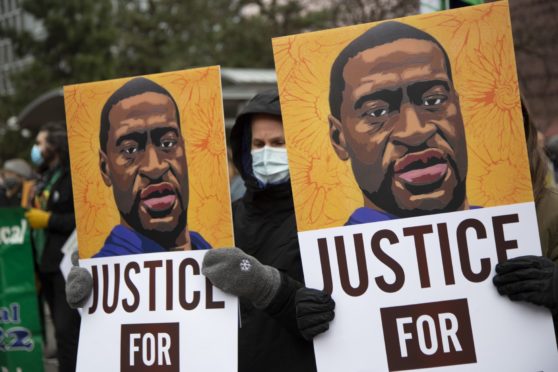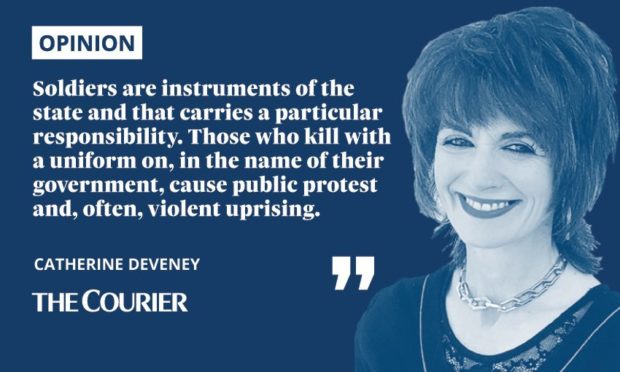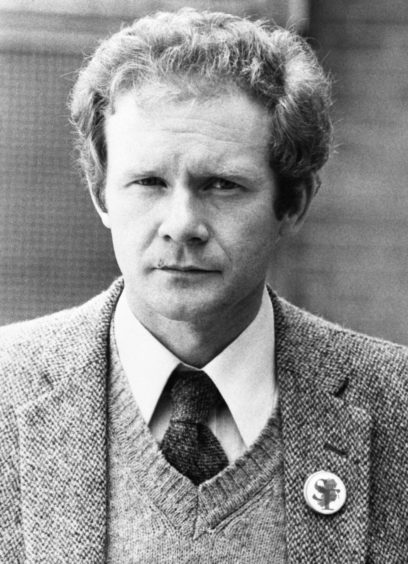Belfast, 2004. In the febrile atmosphere of Stormont parliament, I watch the late Martin McGuinness, consummate politician, cutting through chaos in the chamber.
He was minister for education then, a long and interesting road from his position as the IRA’s Chief of Staff.
Afterwards, in the quiet of his office, the room seemed to shrink a little when I asked if he had been prepared to pull the trigger himself. His answer was stark. He didn’t join to play tiddlywinks.
The moment, which later prompted me to write a novel about The Troubles, flashed back when reading about the row this week over two British soldiers being prosecuted for alleged past atrocities in Northern Ireland.
Johnny Mercer, Junior Defence Minister and former army captain, resigned over this issue, saying: “It is one of the disgraces of modern Britain that we are attempting to prosecute people 50 years after things took place.”
How innocuous that vague word “things” sounds. But those “things” involved blood and treachery and the murder of innocents – and that’s official.
The 2010 Saville report into Bloody Sunday condemned the indiscipline of soldiers and the unlawful killing of 13 innocent civilians, “none of whom was posing a threat”.
More importantly, the inquiry noted the societal effect of those killings – the fact that it exacerbated violence in Northern Ireland for years to come.
Terror turned to anger
It was a point illustrated by McGuinness. The casual coldness of his tiddlywinks comment shocked but intrigued me. What led him to that place? “An unlawful shooting,” he said.
As a youth, he turned into his home street in the Bogside one day and saw local lads throwing stones at army tanks.
There was a shot, a commotion, confusion. McGuinness moved towards the crowd. The bloodied corpse of a friend, Dessie Beattie, was lifted up. What did McGuinness feel? “Terror.”
When was murder acceptable? When was child abuse morally defensible? They never were. It was just acceptable, in some quarters, to cover them up
I understood that. The fear of seeing your first dead body, of confronting the enormity of death, the realisation that the body is just the detritus of the spirit. It is a lot to take in when you are young.
And yet, wouldn’t fear make you turn from, not towards, violence? Perhaps.
Except that just a few days later, McGuinness saw exactly the same thing happen again to another contemporary. His fear turned to anger. His country, he believed, was now at war with Britain.
Unlawful killings and internment gave birth to a whole new generation of Republicans. “It had a very serious effect on the psychology of young people,” he said that day.
Those with blood-stained hands should worry
Johnny Mercer complains standards are being imposed retrospectively – the same tired argument that is so often pulled out about paedophilia. “Things were different then.”
Really? When was murder acceptable? When was child abuse morally defensible?
They never were. It was just acceptable, in some quarters, to cover them up.
Mercer is unhappy that the Good Friday agreement freed terrorists, while soldiers are now being jailed.
How is that fair, he asks, when the military “upheld law and order in Northern Ireland for 30 years”?
But if they upheld law and order, they have nothing to fear. It is those who took it into their own blood-stained hands who need worry.
Soldiers are instruments of the state and that carries a particular responsibility. Those who kill with a uniform on, in the name of their government, cause public protest and, often, violent uprising.
The murder of George Floyd in America by police officer Derek Chauvin was important not just because of the individual death but because of the societal message it sent out.
Acknowledgement of wrongdoing is important
Justice has no sell-by date. It has no limits, no boundaries; it just is.
Certainly, it is distressing when some hunched figure in their 90s is led, handcuffed, into court, accused of holocaust atrocities.
Or some sad, inadequate old man is revealed as the sexual predator of innocent children and jailed.
Or a soldier is prosecuted when war has ended.
But these people weren’t always old. When young, they stole lives and stole childhoods. They destroyed hearts and minds and families and futures.

Given the volatile situation in Northern Ireland, this issue needs careful handling. I have no difficulty with a just amnesty. And yes, some of those soldiers were mere teenagers, carrying guns weightier than their life experiences.
But even if sentences reflect some kind of amnesty, acknowledgement of wrongdoing is important.
This isn’t about revenge. It’s about justice. Johnny Mercer may think it abandons soldiers to hold them to account. The truth is, it destroys democracy not to.
Catherine Deveney is an award-winning investigative journalist, novelist and television presenter


